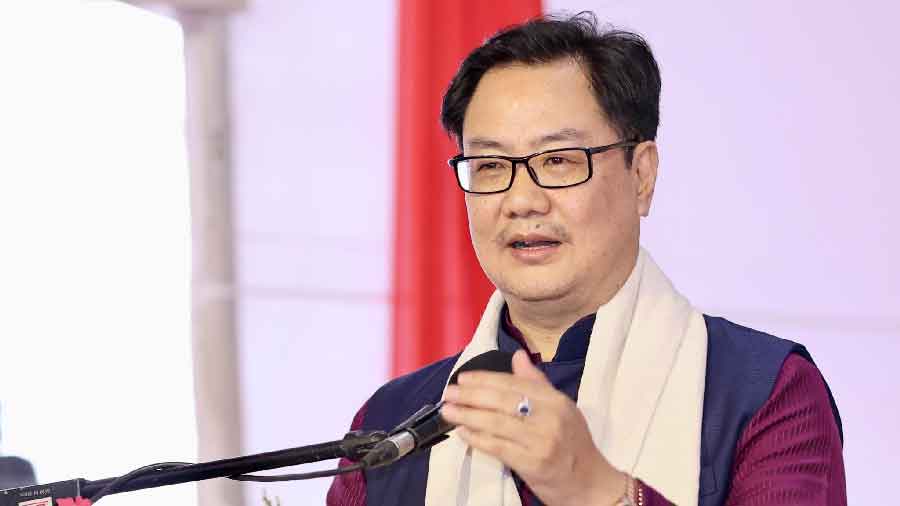Constant carping was not enough. After frequent comments against the collegium system of appointment and transfer of judges, the Union law minister, Kiren Rijiju, sent a letter to the Chief Justice of India, D.Y. Chandrachud, suggesting that the collegium grant the Centre a role in its decisions, that the government have a ‘representative’ in a ‘joint search committee’ for judges. The Narendra Modi-led government appears unwilling to accept the Supreme Court’s 2015 dismissal of the National Judicial Appointments Commission Act that would have given the government a crucial role in decisions regarding judges’ appointments and transfers in the Supreme Court and high courts. Mr Rijiju’s letter reportedly evoked the collegium’s determination to block any ‘political’ interference. The opposition is now open and defined, reaching into the foundations of India’s democratic structure. Earlier, the Union law minister’s comments about the collegium system being opaque and alien to democracy had become so regular as to make the breach of propriety a routine part of the government’s characteristic adversarial rhetoric. The government also sat on the collegium’s reiterated recommendations. Yet the executive can return a recommended name only once; it is bound to accept it should the collegium send it back.
The government’s attitude is better articulated in the statements of the vice-president, Jagdeep Dhankhar. He criticised the judgment that dismissed the NJAC as unconstitutional. The staple of Mr Dhankhar’s argument is the fact that the NJAC bill was passed unanimously by both Houses of Parliament, so dismissing it went against the verdict of the people. Recently, the vice-president said that he did not agree with the principle that Parliament may amend the Constitution but not alter its basic structure. So, not only was the attempt to change the collegium system being placed in the open but the possibility of changing the ‘basic structure’ of the Constitution was no longer disguised. The two are allied: in the worst case, if the executive can select judges then the Constitution can be altered more easily. The collegium system is not flawless. But aggressive attempts to wrest a role in judges’ selection is not the way to improve it. Besides, doubts about the government’s intentions have been bred by its inability to earn trust. Mr Rijiju and Mr Dhankhar have sharpened the appearance of conflict. Surely the damage to democracy is unintentional?











